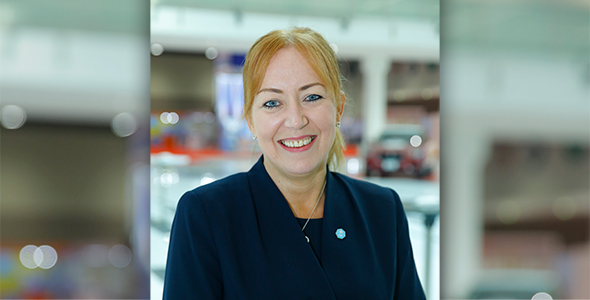By Tiffany Bias, PharmD, BCPS, BCIDP, AAHIVP, Director of Antimicrobial Stewardship – East at bioMérieux, Inc.
Interviewing: Catherine Duggan, FRPhamS, CEO of the International Pharmaceutical Federation
After our first Q&A with Dr. Catherine Duggan, Helping Pharmacists Fight Antimicrobial Resistance, we caught up with her to talk about what clinical pharmacists can do in their roles to contribute to and promote antimicrobial stewardship. This Q&A has been lightly edited and condensed for the purposes of this article.
What innovative ways can practitioners in the pharmaceutical sciences preserve existing and future antibiotics?
Successful stewardship programs in community and hospital settings imply collaboration between physicians and pharmacists, such as that achieved through the, “Doctors-Pharmacists Quality Circles for Prescribing”, in Switzerland. Under this program, pharmacists and medical doctors review scientific, clinical, therapeutic, and economic data on a regular basis to ensure optimal care for individuals. They compare these with their current prescribing patterns and discuss any deviation from evidence-based practice. Such models have demonstrated the impact in terms of rational prescribing of antibiotics and illustrate the powerful synergy of inter-professional activities.
Pharmaceutical company practitioners can help frontline pharmacists who make day-to-day stewardship interventions preserve antibiotics and use new antibiotics responsibly in several ways. They can present new literature and help determine the best use of new antibiotics, they can support ongoing educational efforts, and they can provide grants to support antimicrobial stewardship pharmacist interventions, research, and application of rapid diagnostic testing to improve patient outcomes.
What role will diagnostics and information technology play in ensuring appropriate utilization of antimicrobials and mitigating the spread of resistance? What strategies are warranted to guarantee access for pharmacists, scientists and educators across various communities and industries?
Diagnostics have great potential to help practitioners with precise diagnosis and then appropriate treatment, while keeping the concept of prudent use of antibiotics. Information technology can also help with behavioural change. For example, there are mobile health applications being piloted in selected hospitals in Africa that help practitioners with antibiotic stewardship. Pharmacists have to continue to collaborate with scientists and educators across various communities and industries to further ensure appropriate utilization of antimicrobials and mitigate the spread of resistance, and technologies can be of a great help in the future.
The first step is making the diagnosis. Rapid diagnostic tests are critical, but without antimicrobial stewardship programs, they may have little or no impact on patient care. FIP antimicrobial resistance (AMR) initiatives will address the role of pharmacists and rapid diagnostic testing. We can do Zoom calls, YouTube videos, Tweets with links to articles to show pharmacists how to advocate for a rapid diagnostic tests, implement using them, and then documenting their impact on time to effective antimicrobial therapy.
What interprofessional and organizational barriers do you envision will arise with the expansion of pharmacists’ scopes of practice as it relates to AMR?
Barriers of course exists in expansion of pharmacists’ scopes of practice. However, FIP is actively working on removing them. We have seen great progress in vaccination administration for pharmacists, which directly contributes to infection prevention and control, thus helping minimizing AMR. What we have seen is that despite a consolidated global trend towards pharmacists having the authority to vaccinate, several barriers remain a challenge around the world, including regulatory obstacles, opposition by other health professions, and a lack of appropriate incentives and remuneration for a public health service that generates savings for patients and health systems.
In the global health arena, FIP keeps advocating that many more lives can be saved through increased coverage and access to vaccines, which can only be improved if a life-course approach is promoted through strong efforts from all immunization stakeholders. FIP supports its members and urges the policy makers to promote and expand pharmacists’ roles in immunization. Advocacy, as well as patient-centred communication on interprofessional and organizational level is very important in reducing barriers to expansion of pharmacists scopes of practice as it relates to AMR.
Physician autonomy may be threatened in some countries. Competing interests by other organizations addressing AMR can be an issue. FIP has a unique platform because we are a pharmacy organization. We have the ability to work with physician colleagues to assure them we can help fight AMR together.
Opinions expressed in this article are not necessarily those of bioMérieux, Inc.



